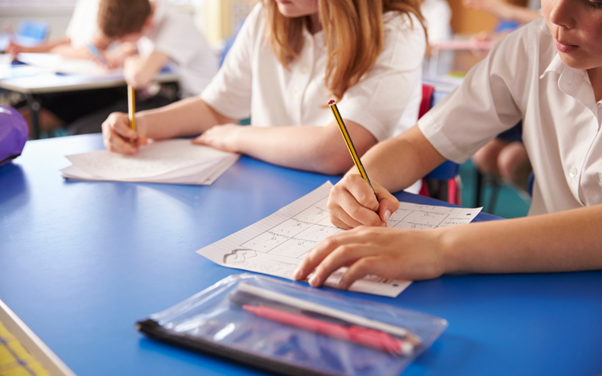Private primary schools in Singapore provide a distinctive and competitive educational setting that attracts local and international families. Thanks to the city-state’s esteemed reputation for academic achievement, families can typically find these institutions to emphasise holistic education, state-of-the-art facilities, and a variety of curricula.
Discover more of what parents and students may anticipate from private, particularly international, primary education in the region.
Curriculum and Learning Approaches
Private primary schools often adopt global curriculums or hybrid models that blend local standards with international elements. Many schools offer the International Baccalaureate (IB) Primary Years Programme, British National Curriculum, or American-style curriculums, emphasising critical thinking, creativity, and inquiry-based learning. This approach to international primary education aims to equip students with a global perspective while adhering to the city-state’s rigorous academic standards.
Students in private schools are often encouraged to engage actively in their learning. Unlike traditional rote memorisation, private institutions prioritise critical thinking and interactive learning methods. This dynamic approach benefits young learners, fostering their natural curiosity and preparing them for diverse academic challenges.
Key Takeaways:
- Global curriculums (e.g., IB, British National Curriculum) are common.
- Emphasis on critical thinking and inquiry-based learning.
- Exposure to global perspectives from a young age.
Smaller Class Sizes and Individual Attention
One of the biggest draws of a private primary school is the smaller class size, which allows for more personalised attention. Teachers can focus on each student’s strengths, learning styles, and areas for improvement, providing tailored guidance that might not be possible in larger class settings. This personalised approach fosters an environment where students feel valued and supported, leading to improved academic outcomes.
Smaller class sizes also allow for flexible teaching methods, enabling teachers to adjust their lesson plans to suit the needs of individual students. Parents can expect regular updates and communication from the school on their child’s progress, with many schools offering parent-teacher meetings and progress reports throughout the academic year.
Key Takeaways:
- Smaller class sizes lead to personalised learning.
- Teachers can focus on individual needs and learning styles.
- Regular communication with parents about student progress.
READ MORE: The Advantages of Small School Environments
Bilingual Education and Language Support
Private primary schools often emphasise bilingual education due to the city-state’s multilingual society. This bilingual approach typically offers instruction in both English and Mandarin. These schools also frequently provide language support for students from non-Mandarin-speaking backgrounds to help them adapt. Many private schools also offer third-language options, making them ideal for expatriate families seeking an international school for primary education.
The bilingual approach at private primary schools gives students a competitive advantage, fostering language proficiency at an early age. Private schools prepare students for the region’s bilingual culture and its demand for multilingual communication skills by integrating language lessons with the core curriculum.
Key Takeaways:
- Emphasis on bilingual education (English and Mandarin).
- Additional language support for non-native speakers.
- Third-language options are often available.
Facilities and Extracurricular Activities
Private primary schools invest significantly in modern facilities and extracurricular programs. These schools often feature state-of-the-art science labs, technology suites, libraries, and sports complexes that support a well-rounded education. Extracurricular activities range from performing arts to coding classes and sports, allowing students to develop talents outside of academics.
Participation in extracurricular activities is strongly encouraged, as schools aim to nurture a balanced student life. Private schools understand that a student’s development goes beyond academics; therefore, they promote skills like teamwork, leadership, and time management, which are essential for personal and professional growth.
Key Takeaways:
- Advanced facilities, including science labs and sports complexes.
- A broad range of extracurricular activities, from arts to technology.
- Emphasis on holistic development and life skills.
Admission Process and Tuition Fees
Admission to private primary schools can be competitive, especially for institutions with strong reputations. Families must prepare for an application process that may include entrance exams, interviews, and submission of past academic records. The process aims to assess a child’s readiness for the academic rigours of the school and ensure they’re a good fit for the school’s values and curriculum.
Tuition fees at private primary schools are significantly higher than those at public schools due to the extensive resources, small class sizes, and global curriculums provided. Families should consider these costs alongside the long-term benefits of private education, especially for those seeking international primary education with a global focus.
Key Takeaways:
- Competitive admission process with potential entrance exams and interviews.
- Higher tuition fees than public schools, reflecting quality resources.
- Long-term investment in global and holistic education.
Conclusion
Selecting a private primary school presents a variety of advantages, including tailored educational approaches, bilingual instruction, a wide range of extracurricular options, and state-of-the-art facilities. Families pursuing a supportive and internationally minded education can find that these institutions offer a holistic experience that equips students for the challenges of secondary education and future endeavours. The emphasis on personalised attention, language acquisition, and comprehensive learning renders international primary education an excellent choice for local and expatriate families aiming to enhance their child’s future prospects.
Contact The Grange Institution to give your child the gift of a globally recognised education!






